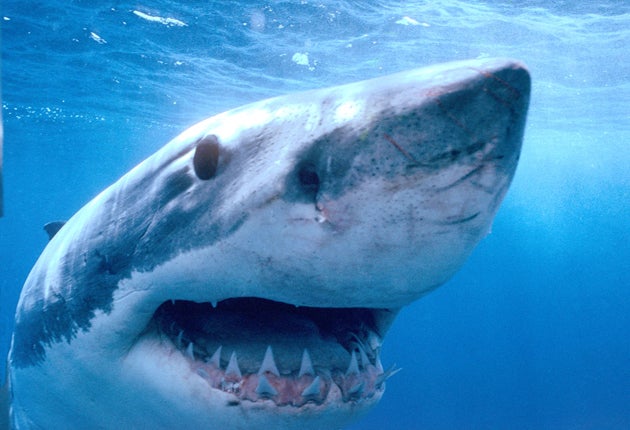Great whites more threatened than tigers

Your support helps us to tell the story
From reproductive rights to climate change to Big Tech, The Independent is on the ground when the story is developing. Whether it's investigating the financials of Elon Musk's pro-Trump PAC or producing our latest documentary, 'The A Word', which shines a light on the American women fighting for reproductive rights, we know how important it is to parse out the facts from the messaging.
At such a critical moment in US history, we need reporters on the ground. Your donation allows us to keep sending journalists to speak to both sides of the story.
The Independent is trusted by Americans across the entire political spectrum. And unlike many other quality news outlets, we choose not to lock Americans out of our reporting and analysis with paywalls. We believe quality journalism should be available to everyone, paid for by those who can afford it.
Your support makes all the difference.The number of great white sharks may have fallen below the number of tigers, one of the world's most endangered terrestrial species that benefits from a huge effort to save it from extinction.
Like tigers, great whites are a top predator and, like tigers, they have suffered in recent years from habitat destruction and hunting. But unlike tigers, great white sharks get little public sympathy, said Dr Ronald O'Dor, senior scientist at the Census of Marine Life, a 10-year study into ocean wildlife.
"We hear an awful lot about how endangered tigers are but apparently great white sharks are pretty close to the same level. Some people say, 'I don't care, they eat people', but I think we have to give them a little space to live in," Dr O'Dor told the American Association for the Advancement of Science in San Diego.
"Australia now has a system where they put tags on great whites and they have receivers on the beaches so when one comes into the bay the receiver makes a cell phone call and tells the guy in charge to close the beach. So we can co-exist with marine life," he said.
Based on the understanding on populations, scientists can estimate how many sharks there are in the world. "Until recently, people thought sharks were bad and there was no urge to save great whites. Now people are beginning to understand that they are rare and that they are a wonderful species," Dr O'Dor said.
The convention on the trade in endangered species, CITES, estimates the number of tigers in the wild at 3,500. Estimating the number of great white sharks is more problematic but studies using tagged sharks suggest that there may be just a few thousand left.
Join our commenting forum
Join thought-provoking conversations, follow other Independent readers and see their replies
Comments